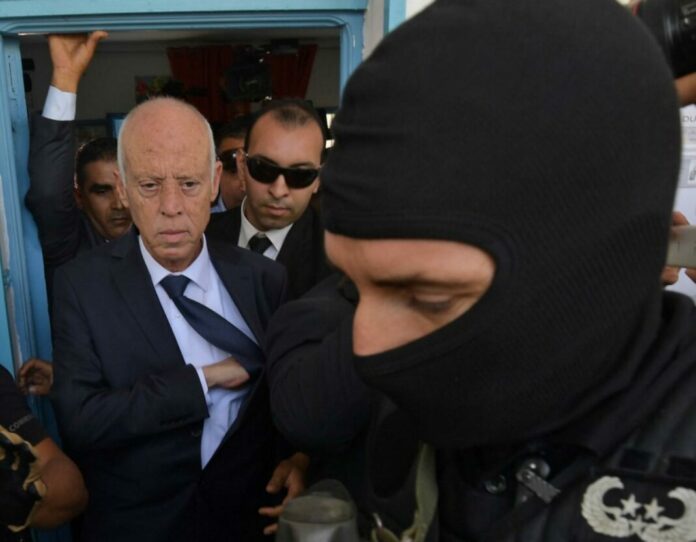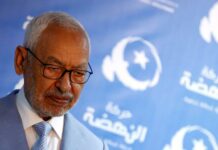As expected for a few days, the President of the Republic Kaïs Saïed crossed the Rubicon. It issued and promulgated yesterday in the Official Journal a decree on the provisional organization of public authorities. It’s not in the title but it’s just the same. In two stages and three movements, it buries practically the entire system inherited from the 2014 Constitution. As a result, it is reduced to a vegetative state but, paradoxically, still functional. The Dotted Constitution However, Kaïs Saïed seems selective in this matter.
Indeed, the decree expressly retains the preamble of the Constitution, its first and second chapters and all constitutional provisions that are not contrary to the provisions of the Presidential Decree. Moreover, the decree lists its own explanatory memorandum and its purpose. Indeed, it considers that the functioning of the public authorities has been hindered and that the danger has become not imminent, but real, particularly within the Assembly of the Representatives of the People. Furthermore, it enacts that the principle that sovereignty belonging to the people, if the principle precludes the procedures for its application, the principle must prevail over forms and procedures. As for the purpose of the revisions provided for in the decree, they are clearly listed. Namely, “the establishment of a true democratic regime in which the people are effectively the holder of sovereignty and the source of the powers they exercise through elected representatives or by referendum.” Stated purposes
This is followed by another paragraph that is no less substantiated. Indeed, it specifies that “this regime is based on the separation of powers and the real balance between them, enshrines the rule of law and guarantees public and individual rights and freedoms and the achievement of the objectives of the revolution of 17 December 2010 relating to work, freedom and national dignity.” The said draft revisions are submitted by the President of the Republic for approval by referendum. In short, Parliament seems to be virtually dissolved, without express formalities. For its part, the Constitution will have to be subject to substantive revision. The decree makes it clear that the powers of the Assembly of the Representatives of the People remain suspended. It also recalls that the parliamentary immunity of all members of the Assembly of the Representatives of the People remains waived.
Last but not least, the decree puts an end to all bonuses and benefits granted to the President and members of the Assembly of the Representatives of the People. Cumulation of powers, Government of the President For the time being, Kaïs Saïed combines the presidency of the executive with all legislative prerogatives not subject to any form of action for annulment. Moreover, the decree pre-emptively dissolves the Provisional Body for the Control of the Constitutionality of Bills.
On the government side, a head of government responsible to the only President of the Republic will be appointed shortly. However, it is the President of the Republic who presides over the Council of Ministers. And in the event of a vacancy in the presidency of the Republic, the head of government automatically succeeds him.
Of course, this is a fundamental challenge to the political system resulting from the 2014 Constitution. It is itself in the process of being profoundly revised. For the moment, it is the confusion of powers that is rife, in an exceptional regime. And, above all, there is little countervailing power foreseen.
In addition, no time limit of the state of emergency is currently envisaged. Also, there is no reference, however implicit, to the opposition. A bitter and cruel debate is looming At first glance, Ennahda, its satellites and bumpers are the biggest losers. Indeed, they have held power so far.
The Constitution seems to have been designed to linger them. Similarly, the highest authorities such as the elections, the audiovisual sector or the Superior Council of the Judiciary also seem to be in susrsis. Yesterday’s decree expressly refers to their areas of exercise in the new legislative prerogatives of the President of the Republic. As early as yesterday, the opposition has already begun to cry wolf. The debate does not seem to be exhausted. It begins.
And promises to be harsh, if not cruel. Kaïs Saïed seems a man in front of his destiny. He will not back down. He is riding the wave of popular disgust with the establishment and all the politicians who have so far occupied the front of the stage. In addition to broad fringes of opinion, he has with him the army and the police. And, soon, his own government. But the risks and perils exist, at all levels. We will come back to that.
Franch article (original) by SBF
Translated by Rifi-JDD











